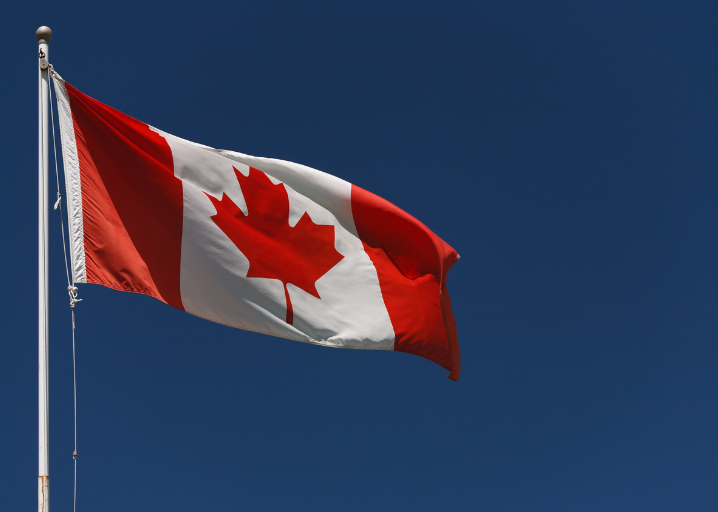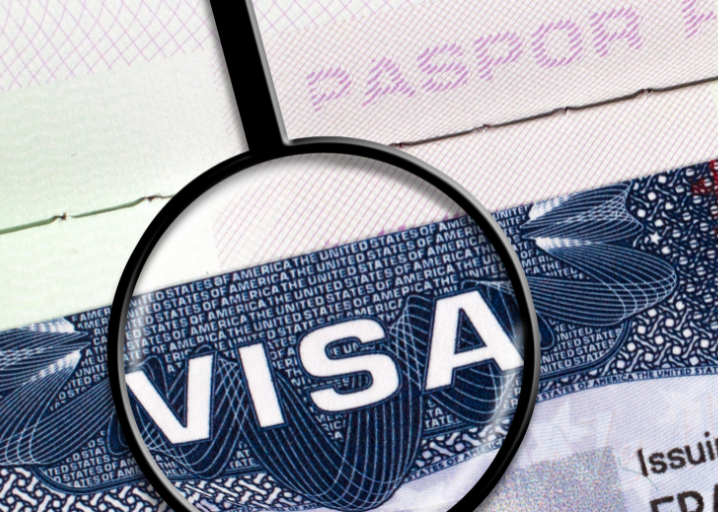Canada Study Permits New Update 2024: Change You Must Know About Provincial Attestation Letter
2024-02-15 2024-06-27 14:28Canada Study Permits New Update 2024: Change You Must Know About Provincial Attestation Letter
Canada Study Permits New Update 2024: Change You Must Know About Provincial Attestation Letter
In January 2024, the Immigration, Refugees, and Citizenship Canada (IRCC) introduced significant policy changes concerning study permits, including the implementation of a cap on the number of study permits issued to international students across Canada.
These updates raise crucial questions: Who will be impacted by this new policy? What differentiates it from the previous regulations? And what essential information must international students be aware of before embarking on their studies in Canada?
Today, Create Career College will delve into the intricacies of the recent IRCC policy adjustments and provide insights into what these changes mean for prospective international students.
Table of Contents
ToggleTable of Contents
—————————————–
Related articles:
- IRCC Study Permit Policy Update in Janurary 2024: Canada’s Strategic Shift in International Education
- 3 Advantages Of Comprehensive CLB Skills Traning After Enrolling At CCC
- How to Rent House in Canada? Best Rent Tips, 10+ Sites | CCC
—————————————–

The Overview of IRCC’s New Policy Regarding Study Permits
The recent changes in study permits could significantly impact the educational landscape in Canada today.
In this section, we will systematically examine the overview of each aspect of IRCC’s new policy change.
Canada’s government has revealed a temporary two-year limit on international enrollment, leading to a reduction in approved study permits for the upcoming academic year. Notably, this cap exclusively impacts new study permit applications filed after January 22, 2024, leaving current students unaffected.
Additionally, modifications to the Post-Graduation Work Permit Program (PGWPP) and spousal work permits form part of a comprehensive strategy aimed at fostering a balanced and enriching educational environment for international students.
Here are the notable revisions implemented by IRCC:
- A cap on international study permits
IRCC’s new policy caps international student permits for 2024, down by 35% from last year, addressing pressures on Canadian infrastructure from rising student numbers.
- A provincial attestation letter (PAL)
From January 22 onwards, a provincial attestation letter (PAL) is required for student visa applications. However, a provincial attestation letter (PAL) is exempted for cases such as student visa extensions, work visa stays, and graduate programs.
- Post-graduation work permit (PGWP)
Beginning February 15, 2024, master’s degree graduates from programs lasting less than 2 years will qualify for a 3-year post-graduation work permit if they meet PGWP eligibility criteria.
- Private College to Public College Partnership Program (PPP)
Existing students are subject to the old rules (eligible for PGWP after graduation). However, new students enrolling in the program will not be eligible for PGWP.
- Spousal work visas
Spouses and common-law partners of international students at lower study levels won’t qualify for an open work permit unless they already have one under this category.
What is the difference between the previous policy and the new policy?
Next, you might ask: What sets the previous policy apart from the new one? In this section, we’ll explore the disparities between the two policies regarding study permits in Canada.
- A cap on international study permits
Before: According to the recent data, over 980,000 Canadian study permits were issued to foreign students in 2023
Source: Ground news
New Policy: 360,000 study permits will be issued by IRCC
- A provincial attestation letter (PAL)
Before:
No provincial attestation letters (PAL) are required for international student applications submitted before 8:30 am ET on January 22, 2024.
New Policy:
Most students permit applications submitted after 8:30 AM ET on January 22nd, 2024, are subject to the requirement for a provincial attestation letter (PAL).
Exceptions to the provincial attestation letters (PAL) requirement are as follows:
Who doesn’t need a provincial attestation letter:
Primary and secondary school students
Those who are applying to study in a preschool, primary school or secondary school (up to grade 12).
Master’s or doctoral degree students
Those who are applying to study in a master’s degree or doctoral degree program.
Visiting or exchange students
You’re a temporary resident who is a visiting or exchange student studying at a designated learning institution (DLI).
In-Canada study permit and work permit holders (includes study permit holders applying for an extension)
Work permits include working holidays, open work permits and closed work permits.
In-Canada family members of study permit or work permit holders
You’re the family member of a foreign national who lives in Canada and is one of the following:
- study permit holder
- work permit holder
Students whose application we received before 8:30 a.m. ET on January 22, 2024
Those who applied before the announcement of IRCC don’t need an attestation letter (PAL).
Source: IRCC
- Post-graduation work permit (PGWP)
Before:
The duration of the PGWP is determined by each period of study.
New Policy:
Graduates from graduate school (master’s and doctoral degrees) are eligible to apply for a three-year PGWP regardless of the duration of their period of study.
- Private College to Public College Partnership Program (PPP)
Before:
In certain provinces, public colleges can license their curriculum to affiliated private colleges. In such cases, students attend classes at private colleges but receive diplomas from public institutions.
New Policy:
New students entering this program type will not be eligible for a post-graduation work permit.
- Spousal work visas
Before:
Open work permits are not limited to spouses of students studying at the Master’s or PhD level; they are available to those who meet the eligibility criteria.
New Policy:
Only spouses or common-law partners of graduate or professional degree program students are eligible for the SOWP. If they already have a valid SOWP when the change takes effect, a visa extension is possible.

How to Enroll in Our 2-Year Diploma Programs with Co-op?
To learn more about CCC’s co-op programs, visit here:
Diploma and certificate programs
What do international students have to know before coming to Canada?
Before coming to Canada, international students should remain updated on the latest updates from IRCC regarding any new policies or changes concerning student permits.
Specifically, visa applicants should be aware of any modifications made, the required documents for submission, and their eligibility criteria for application. It is crucial to maintain communication with the college to which they are applying to stay informed about any pertinent updates or requirements.
Keep updating the latest Information with Create Career College!
At Create Career College, we consistently provide updates on the latest changes as soon as they are announced by IRCC. Our current policy regarding IRCC updates is outlined below:
While we notice there is a cap of 360,000 on new international student permits for 2024, Create Career College (CCC)’s monthly admission quota will be in effect from today’s onwards.
The monthly quota may vary. To navigate this, the CCC admission department is committed to a first-come, first-serve approach, ensuring every student has the equal opportunity to access high-quality education in Canada.
Conclusion
The rapid changes are leading to confusion among international students. However, Create Career College is committed to supporting all students through this transition.
If you have any concerns or questions regarding school enrollment or regulations, our CCC admission department consultants are ready to provide additional information and support. Feel free to reach out to us for guidance and assistance in navigating these adjustments.
Related Posts
What Is Hospitality Management? Career Opportunities in Canada
What is UI/UX Design? Difference between UI and UX Design
Top 10 Best Digital Marketing Certificates in 2024
Is Digital Marketing a Good Career in Canada? 2024 Updated
Search
Categories
- What Is Hospitality Management? Career Opportunities in Canada
- What is UI/UX Design? Difference between UI and UX Design
- ¿Puedo estudiar inglés y trabajar en Canadá?
- Learn French as a Second Language to Get CLB 5 For Express Entry – Advantages of French as a Second Language (FSL)
- 加拿大打工遊學 Co-op 是什麼?課程介紹及推薦 | 2024 最新費用






